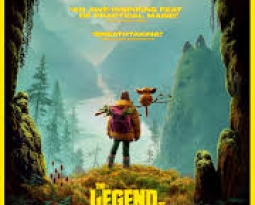The life story of legendary R&B singer, Aretha Franklin.
Chuck says:
A major misfire on nearly every level, “Respect,” the film biopic of Aretha Franklin gets off on the wrong foot and stumbles about for nearly two and half hours. Fragmented and scattered, the movie comes off as a Cliffs Notes version of the singer’s life, a project that leaves the viewers with more questions about the performer than it answers. Frustrating and murky, the uneven nature of this project and the lackluster performance from Jennifer Hudson as the troubled singer doom the film, making its running time seem twice as long, a slog that dead-ends down one narrative cul-de-sac again and again.
We first see Aretha at age eight, her domineering father Reverend C.L. Franklin (Forest Whitaker) making her perform like a show pony for invited guests, many of them Motown legends. Unaware that this man was a charismatic leader in the Detroit area, I was left wondering just why Sam Cooke, Dinah Washington and others were regularly hanging around the Franklin residence. Not including this vital information as well as why her parents were estranged, the circumstances surrounding her mother’s death and just how Aretha ended up with two children by the time she was 15 years old are just a few of the many major omissions in Tracey Scott Wilson’s Swiss-Cheese script.
To say the film moves by leaps and bounds is an understatement akin to saying the Titanic had a minor mishap. Suddenly the Franklins have moved to Birmingham, Aretha has grown into Jennifer Hudson and is singing at rallies for Martin Luther King Jr (1960), soon to be signed by Columbia Records (1961) before recording in New York City for producer Jerry Wexler, played with verve by Marc Maron (1967), only to go to the Muscle Shoals Sound Studio in Alabama (1969) to revitalize her career. Each of these moments are touched upon, a scene of two is devoted to each of these events, and then it’s on to the next. Whiplash is a genuine concern when taking in this film.
As a result, the movie has a fractured feel to it that makes it impossible to become engaged in the story or Franklin’s plight, tragic as it might be. That her life plays like a parade of cliches is unavoidable, as so many other troubled musicians’ lives have made it to the big screen and we’ve become overly familiar with the fall she takes. An abusive husband in the form of opportunist Ted White (Marlon Wayans, giving the movie’s best performance) appears on the scene, while drug abuse and extreme hubris on Franklin’s part rear their ugly heads as well.
Perhaps this is why Wilson and first-time director Liesl Tommy utilized this hopscotch approach in telling Franklin’s story – we’ve seen it all before! Why dwell on nuance or character development?!? They know we’re going down this well-worn narrative path before so why dwell on the details? The approach is to hit the highlight and move on. Having cut her teeth directing television episodes, Tommy seems incapable of building an extended narrative, eschewing the notion that a sense of pacing has to build over time to an effective climax.
The most surprising thing about the film is Hudson’s by-the-numbers performance. The usually reliable actress flounders here, making obvious choices throughout, a cursory turn that matches Tommy’s shorthand approach. The only saving grace is her rendering of Franklin’s seminal hits, the few moments of the film that contain any passion, something the rest of “Respect” sorely lacks.







